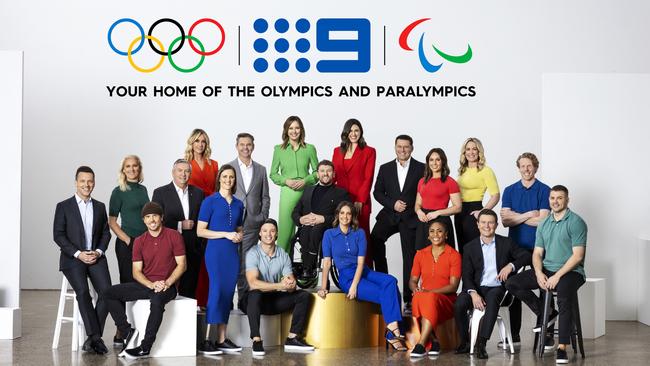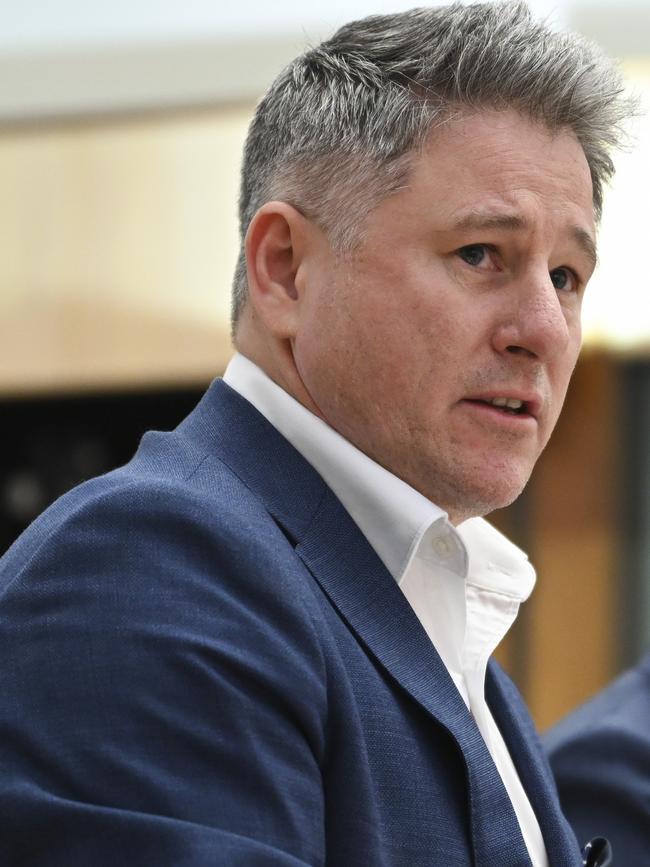Nine faces Olympic Games blowout, as rising costs and ad slump bite
Sources say Nine’s total Games costs of at least $120m mean a tough financial outcome is looming, despite Nine chief Mike Sneesby confident of breaking even.

Nine Entertainment is staring at a potential $60m loss from its Paris Olympics broadcast as the cost of the Games coverage mounts while the advertising market is softening.
Several sources have told The Australian that Nine’s total Games costs of at least $120m – including about $100m on its broadcast deal with the International Olympic Committee plus $20m or more in soaring production costs – mean a tough financial outcome is looming.
The network is likely to write revenue of $60m – the most optimistic projection is $80m – which would leave it with a loss of $40m-$60m.
Nine is reported to have paid at least $305m last year for the rights to the next three Summer Olympics and the next two Winter Games, though the latter are usually considered to be of negligible value to an Australian audience.
The network is betting that the deal will eventually pay off in eight years with a home Olympics in Brisbane in 2032, but it faces an uphill fiscal battle in the meantime.
The Paris Games will mostly take place at night, Australian time, meaning much of the audience will catch up with the action via replays and highlights in the mornings when they wake up, or via re-runs of events during the day.
The last time the Olympics was held in a similar time zone for Australian audiences was London in 2012, when Nine held the Australian broadcasting rights. The network reportedly lost about $25m on those Games, which were forgettable from an Australian point of view as our medal hopes, particularly in swimming, were not realised and audience interest dropped off as the fortnight progressed.
Seven paid about $170m for a three-Games rights package in 2014, covering Rio de Janeiro in 2016, the PyeongChang Winter Games in 2018 and ending with Tokyo in 2021, delayed from the previous year because of Covid restrictions.
Just three days before the Rio Games, Seven released a profit warning to the ASX, flagging a big drop in earnings for 2016-17, largely due to the cost of screening the Olympics.
In 2017, Seven wrote down the value of its three-Games package by $70m.
The Tokyo Games reportedly led to a $60m net loss for Seven, even though TV ratings were stronger than forecast, possibly because parts of Australia were still in lockdown though the timezone was advantageous for Australian audiences.
That helped Seven break even on the Tokyo event itself, but while it ended up $20m better off than first feared it still lost $60m, including the writedowns on onerous contracts.
Worryingly for Nine, the 2028 Summer Games will be held in Los Angeles – which has a similar time zone to Rio de Janeiro – meaning most blue ribbon events will take place in the middle of the night, Australian time.
Last month, The Australian revealed that Nine was facing a massive shortfall in revenue during the Games, as it was struggling to find clients for its smaller Olympics advertising packages, which, cumulatively, are worth many millions of dollars.

The longer than expected industry-wide slump in the advertising market, combined with the reputational damage suffered by Nine over the past two months – amid allegations of workplace harassment and bullying – have cut the network’s Olympics revenue projections, network insiders told The Australian.
However, Nine chief executive officer Mike Sneesby has been bullish about the value of the Olympics in the lead-up to the Games.
“We are excited about the opportunities associated with the upcoming Olympics and Paralympics – about the audiences and advertisers these events will bring to our platform, about the data we will collect and lessons we will learn in terms of user preferences and dynamics,” he said at a conference on May 8.
“Importantly, the longevity of our Olympic partnership provides the opportunity to accelerate our strategy as … we work towards Brisbane 2032.”
Nine is sending 200 staff to Paris as part of its Games coverage, including a 127-strong production crew, dozens of journalists, and 20 from sales, hospitality, the Stan streaming service and corporate figures.
On Sunday, Mr Sneesby remained adamant that the Games would be a success for Nine. “I have previously publicly stated that we will break even for these Games. We are confident that we will match and exceed that,” he said.



To join the conversation, please log in. Don't have an account? Register
Join the conversation, you are commenting as Logout